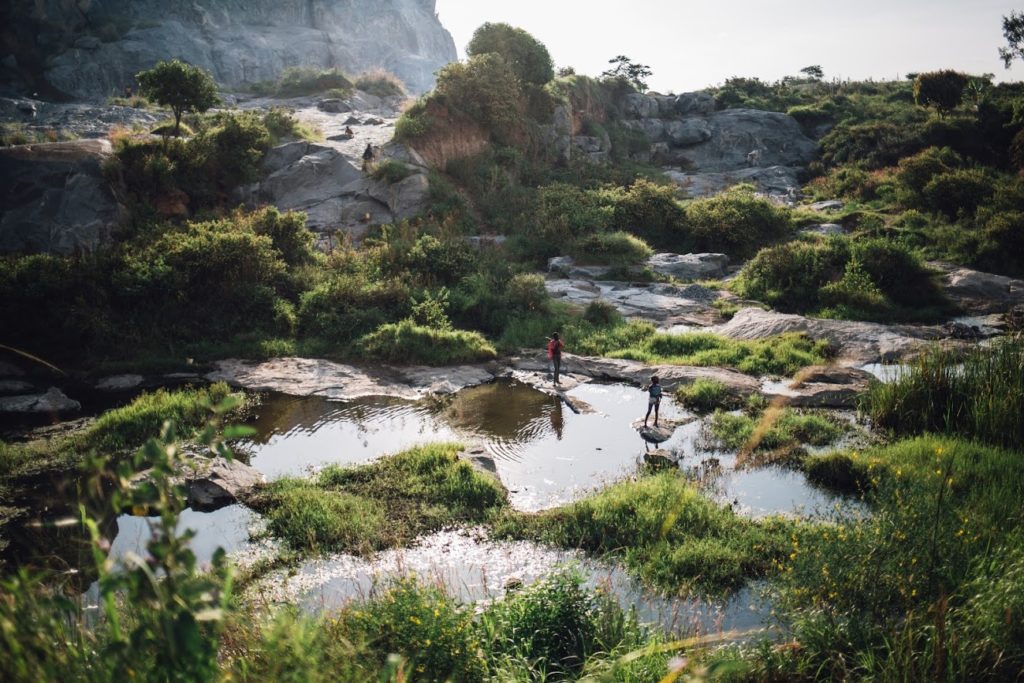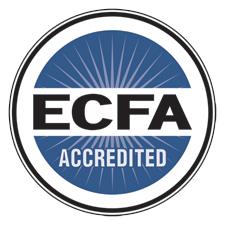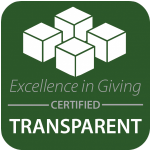Children’s HopeChest is blessed to work in some of the most beautiful countries around the world. The countries we partner with are rich in natural resources and abundant in vibrant landscapes.
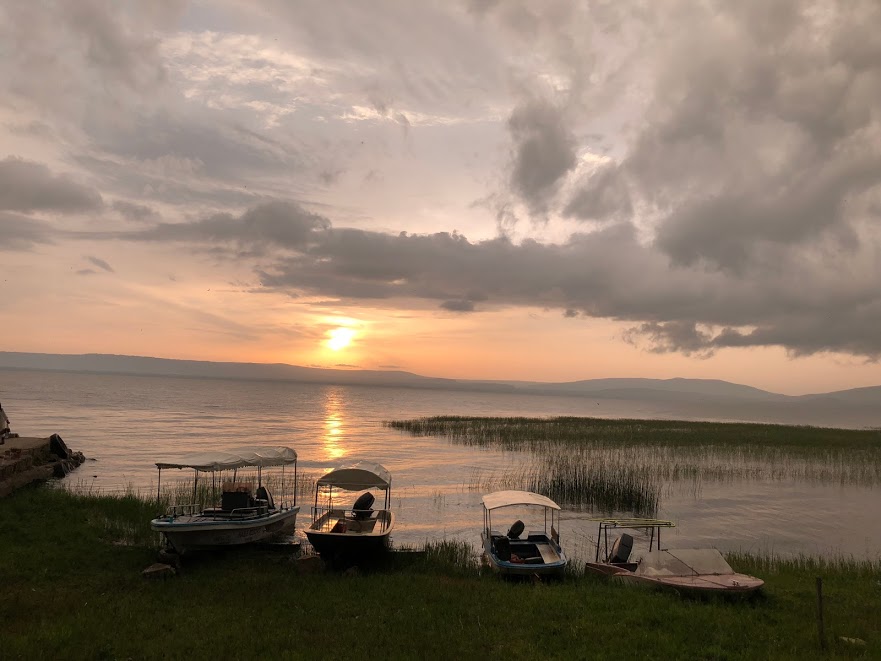
To be good stewards of our planet, HopeChest CarePoints treat water as a vital resource, with local leaders educating community members how to keep water sources clean and clear from debris that would contaminate it. In Uganda and Eswatini, development projects include installing solar panels as an energy source to run water pumps or multipurpose buildings. Agricultural and animal husbandry projects are also popular throughout HopeChest programs and teach children and young adults how to cultivate life from seeds and care for animals in sustainability initiatives.
Today, to celebrate Earth Day, we are highlighting five fun programs that care for our planet from Children’s HopeChest CarePoints and partnered orphanages around the world!
1 ) Reusing Aluminum in Uganda

At Bukedea CarePoint in Uganda, the income-generating activity of aluminum-saucepan-making is thriving! Aluminum saucepans are an excellent, sustainable product because no material is wasted and everything can be melted down to be reused.
The materials needed to create these saucepans are sand, charcoal, a boiler, a pipe blower, and aluminum scraps. First the aluminum scraps are melted and poured through the sand, which is already made into the shape of the saucepan. The aluminum sits in the sand for five minutes and is then pulled out and left to cool. It is then cleaned and excess aluminum is trimmed.
These saucepans are desired in every home because they are regarded as the strongest and longest-lasting pans when used for boiling. This project not only reuses scraps that would otherwise be thrown away, but it also creates a way for the program participants to learn a new skill and build their confidence — all while making money for their families!
2 ) From Litter to Furniture in Eswatini
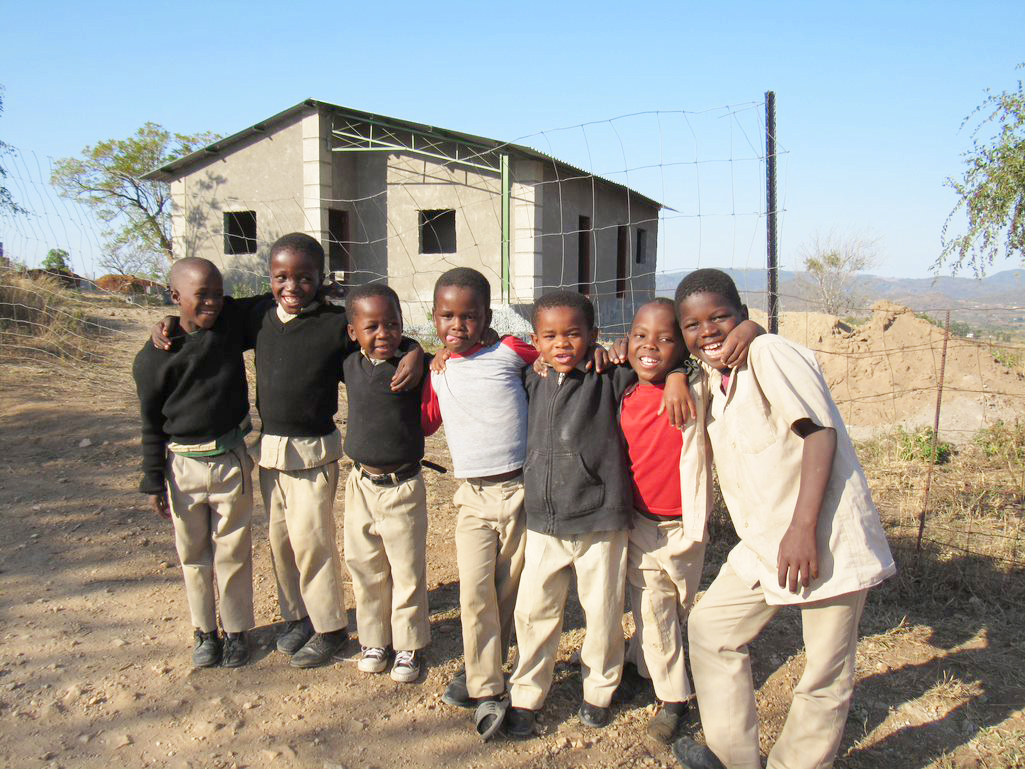
Part of being a good steward of the environment is keeping it free of waste and litter and taking ownership of it. An excellent example of environmental ingenuity within a community is a unique project at the Ngungwane CarePoint in Eswatini.
Two times a month, children participate in an environmentally friendly walk around Ngungwane. This CarePoint has worked hard to get rubbish bins which are placed at strategic points alongside the road that lead to the bus stations. They are marked with information to help pedestrians throw trash into the appropriate bins so they can be recycled.
The plan is to recycle the waste to be made into mats, furniture, and building materials. The children at Ngungwane are enthusiastic about taking ownership of their CarePoint and keeping it clean while contributing to keeping the environment safe and reusing materials. The CarePoint staff is hopeful that this project will take flight and impact many other communities once the project is perfected. “May God bless all these ideas and the brains behind such projects. May such projects bring glory and hope to the Kingdom of God,” says Musa, long-term HopeChest/AIM staff.
3 ) Blooming Gardens in Russia

The Chentsy and Volzhsky orphanages in Russia have planted produce and flowers to make their property a more beautiful and welcoming place, both for the children who live at the orphanages and for the local community members. They planted beetroot, onion, carrot, potatoes, cucumbers, and cabbage and have harvested the reward! When it gets warmer they will also plant cucumbers. They also planted dahlias and seeded annual flowers. Everyone worked hard and the orphanage staff truly appreciated the help.
The orphanages are located almost in the center of the Chentsy Village, and every day village children, and moms with children in tow come to play on the territory of the orphanage center.
“We want everyone see our bloomy garden!” the participants said. We hope that the children will use these gardening skills in their future family life and continue to get excited about what they can grow with their own hands!
4 ) Environmental Protections Club in Ethiopia
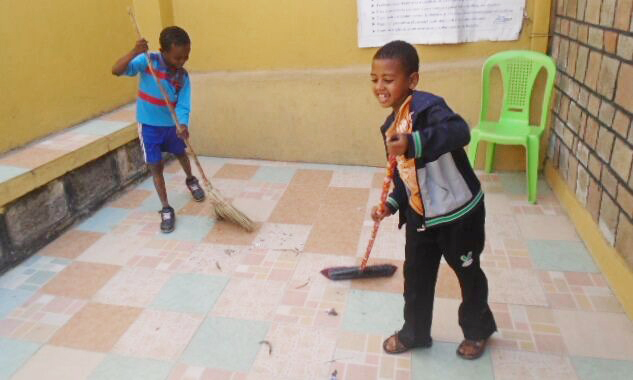
At Alade Genet CarePoint in Ethiopia, the CarePoint has initiated a Children’s Environmental Protections Club. Last year they learned about keeping their environment clear and safe by using different environmental cleaning methods. This year the club has big plans! “Concerning the current global warming, we need to put our print in this time to protect our environment. And also we want to learn the children about how to protect the globe… We even have plans to plant more than 25,000 trees around Hawassa city in the coming four weeks.” says Mesfin, HopeChest’s Program Coordinator for the Hawassa region.
The I Care for the Nation CarePoint in Ethiopia also has an environmental protection club. During weekly club meetings, the children discuss their responsibility to the environment, then volunteer their time cleaning the outside area of the CarePoint. These meetings are always exciting for the children and have a high participation rate!
5 ) Recycling and Composting at HopeChest Headquarters
Here at HopeChest headquarters, our employees are also passionate about eliminating waste, reusing materials, and recycling what we can. We currently have an employee-driven system of recycling and composting!

Chris is the head of our recycling, making sure that our boxes of recycled material get emptied at the end of the week and are ready for another week’s worth of recyclables.
 Kimberly is the head of our composting. She leaves an empty tupperware box on the kitchen table, and over the course of the day it is filled with wilty greens, avocado pits, banana peels, and coffee filters. Once the tupperware is filled at the end of the day she takes it home to be added to her compost collection for Soil Cycle, a downtown Colorado Springs initiative connected to the Colorado Springs Food Rescue. The buckets of compost are collected by electric cargo bikes that bring the material to community gardens and urban farms in our city contributing to the health of our local soil.
Kimberly is the head of our composting. She leaves an empty tupperware box on the kitchen table, and over the course of the day it is filled with wilty greens, avocado pits, banana peels, and coffee filters. Once the tupperware is filled at the end of the day she takes it home to be added to her compost collection for Soil Cycle, a downtown Colorado Springs initiative connected to the Colorado Springs Food Rescue. The buckets of compost are collected by electric cargo bikes that bring the material to community gardens and urban farms in our city contributing to the health of our local soil.
“The Earth is what we all have in common.” Wendell Berry
Today, HopeChest is excited to celebrate the planet that we all call home and the environmental innovation of our CarePoints and partnered orphanages around the world!

